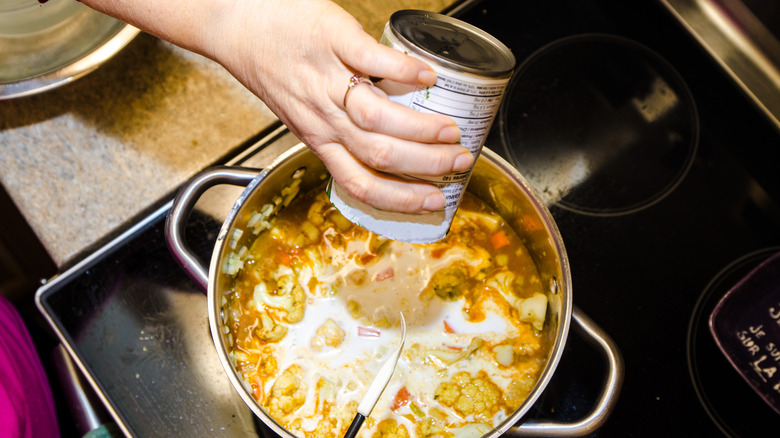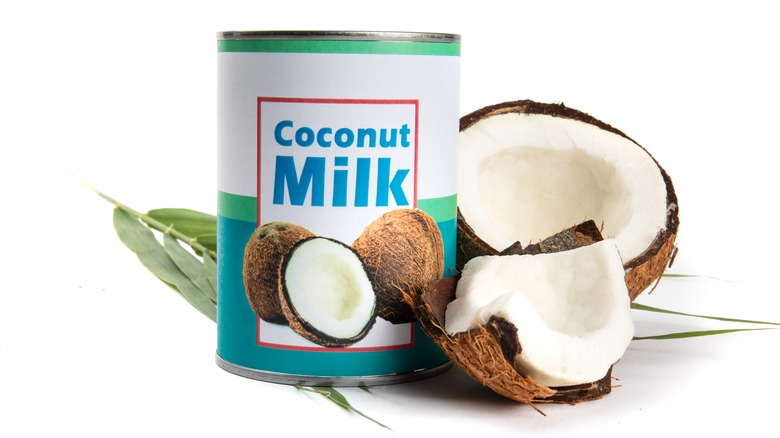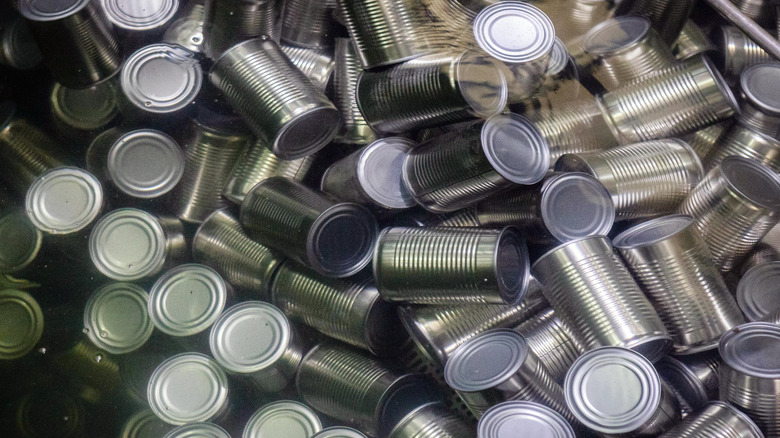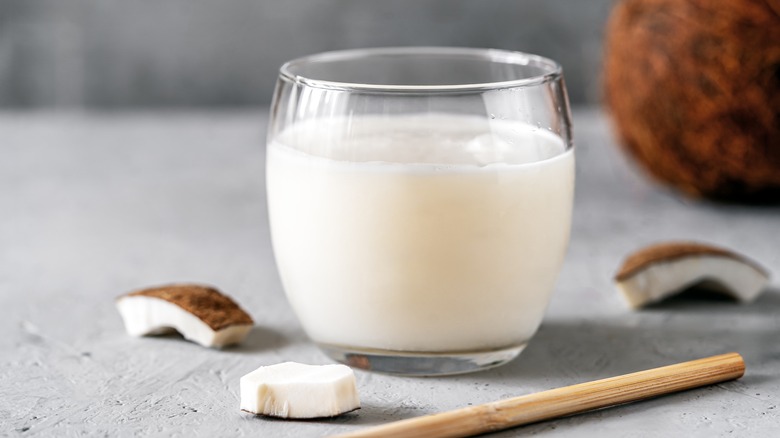Does Canned Coconut Milk Ever Go Bad?
Coconut milk is an excellent staple in any pantry. Whether you're making coconut fish curry or substituting heavy cream in a dish like miso mushroom pasta, this ingredient is versatile and will last for years in a can. Like any canned good, coconut milk is sealed for shelf-stability; but, like any good thing, it won't last forever.
Coconut milk is a creamy liquid extracted from the grated flesh of mature coconuts. It is a common ingredient in many cuisines, particularly in Southeast Asian and Caribbean cooking, and can be used for both savory and sweet dishes. It adds a rich flavor and creamy texture to dishes and is often used as a dairy-free alternative to cow's milk in vegan recipes.
Unlike regular dairy, coconut milk has a much longer shelf life, though it can go bad. Its shelf life depends on good canning, storage conditions, and whether the can has been opened. Before the can of coconut milk reaches your kitchen, it goes through shipment and store stocking, all of which can damage the seal on the can. But, in general, there are some guidelines for how long a can of coconut milk will last in your pantry and signs of spoilage to look out for.
Coconut milk does go bad eventually
According to the USDA, low-acidity canned foods, like coconut milk, will last two to five years on the shelf, and for three to four days after opening and keeping it in the refrigerator. In the latter scenario, it's best to store unused coconut milk in an airtight container in the fridge. For unopened cans, store them in a cool and dry place in your pantry.
Before dumping a can of coconut milk into a pan when you're cooking, take a pause and inspect it. Regardless of the expiration date on the can, always check for freshness. Spot any changes in color, texture, and odor. Spoiled coconut milk will not be milky white; it will darken. Look out for a lumpy texture that persists even after shaking the can. There could be an off-putting smell or mold, too. If these conditions develop, it's best to toss out the coconut milk.
Expiration dates on cans can be a good guide for freshness, but they are not always regulated. Your eyes and nose will be your best guards against bad coconut milk.
Look for dents, bulging, and rust
You can check for dents, rust, or bulging in the can while you're at the store. If you notice any, the can may be compromised. The USDA warns that when cans are shipped, they can get dented in travel. These dents can result in a compromised seal, which allows air and bacteria to enter the can, leading to spoilage of the food inside. Improper canning can also lead to bulging. This indicates air trapped inside the can, which can lead to bacterial growth, and it's best to discard it.
Metal cans also have the potential to rust. Rust indicates corrosion of the tin container, which can contaminate the contents inside the can. In addition to rust, damage to the lining may expose the food to the metal itself. This could lead to chemical contamination of the food because certain metals can react with acidic or alkaline foods. In this case, coconut milk is less acidic, and therefore less likely to cause corrosion in the can. Check for these potential damages every time you reach for a can, whether you're at the store or at home.
What to make with extra coconut milk
Have some leftover coconut milk in the can? Consider whipping up a tasty dinner like Thai-inspired coconut and pumpkin soup or crispy coconut baked chicken breasts. Or, if you have a sweet tooth, try your hand at making mango coconut tapioca pudding or coconut baked donuts. With recipes like these to follow, you'll use up any leftover coconut milk you have before it has the chance go bad.



